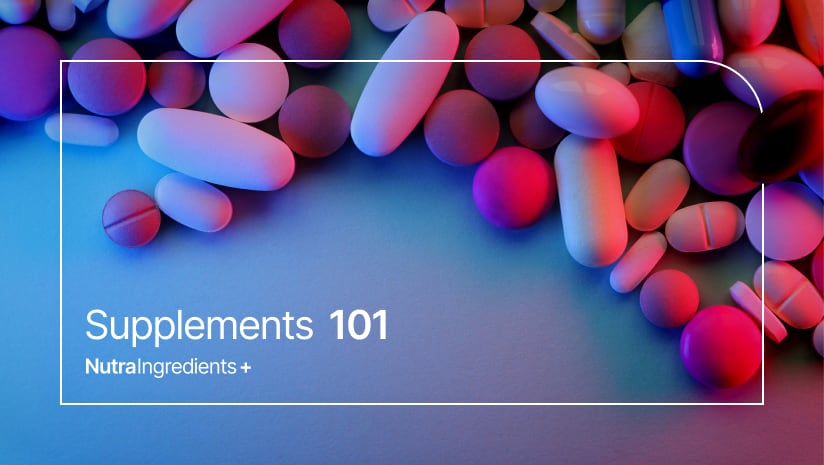Although consumer demand for mind health supplements is rising, brands are still facing major regulatory barriers in the EU when marketing key ingredients such as Ayurvedic herbs, probiotics, cannabidiol (CBD) and mushroom-derived ingredients, due to complex novel food classifications.
Katia Merten-Lentz, a food law expert and partner at Food Law Science and Partners, told NutraIngredients much of this is down to the EU’s strict interpretation of health-claim law.
EU regulations on health claims
EU regulation treats general well-being statements as health claims and prohibits food business operators from using them unless they meet specific conditions, Merten-Lentz explained.
EU regulations strictly control what companies can say about food and mental health. Any claim linking a food or ingredient to health, including cognitive function, stress reduction, mood or overall mental well-being, counts as a health claim.
Companies can only use such claims only if explicitly authorized by the European Commission, based on a scientific assessment by the European Food Safety Authority (EFSA). In short, any unapproved mental well-being or cognitive claims are prohibited.
What are the authorized health claims?
EFSA has authorized a few very specific claims relating to cognitive function and development, Merten-Lentz said. These include: iodine contributes to normal cognitive function, zinc contributes to normal cognitive function, and iron contributes to the normal cognitive development of children.
However, these claims are only linked to the maintenance of normal mental performance or development, not to enhancement or therapeutic effects, she said.
In relation to stress, only health claims regarding oxidative stress are permitted. These include copper, manganese, selenium and zinc, all of which are allowed to claim “contributes to the protection of cells from oxidative stress” thanks to scientific substantiation linked to the protection of DNA, proteins and lipids from oxidative damage.
However, there are no authorized claims for “stress” or “mood” improvement. This includes claims on reducing or managing psychological stress, improving mood, enhancing well-being, relaxation or emotional balance.
Ayurvedic herbs
Many mind-health specific supplements in the market use key ingredients such as Ayurvedic botanicals, probiotics, mushroom-derived ingredients and CBD. However, they all have independent hurdles and obstacles to overcome when it comes to health claims.
Ayurveda, the ancient Indian system of medicine, has long used botanicals to support mind health, enhance cognitive function and reduce stress.
Popular Ayurvedic ingredients include: ashwagandha, found to help manage stress and improve cognitive performance; turmeric, containing curcumin, which has anti-inflammatory and antioxidant properties beneficial for brain health; and brahmi, which has been found to improve memory, concentration and learning capacity.
However, using health claims to promote Ayurvedic herbs remains restricted, as botanical health claims have been on hold since 2010. There is also no clear timeline for resolution, Merten-Lentz noted.
Probiotics
Probiotics can also support mind health because of their role in maintaining gut health, which is closely linked to brain function through the gut-brain axis.
Key probiotic strains for mind health include: Lactobacillus rhamnosus, which has been found to reduce anxiety and stress; Bifidobacterium longum, shown to improve mood and reduce symptoms of depression; and Bifidobacterium bifidum, which may be effective in improving mood and reducing psychological distress.
However, under EU regulation, the term “probiotics” itself is treated as a health claim, which severely restricts its use on product labels. The EU has approved only one health claim, related to yogurt.
Despite this, national authorities are gradually adopting different interpretations, and more than 10 EU Member States now allow the term probiotics on packaging under varying legal justifications.
According to Merten-Lentz, this represents a glaring systemic issue that only one probiotic health claim was authorized in over 20 years and something the European Commission needs to revise or remove to address the regulatory gap.
Mushrooms
Mushroom-derived ingredients, particularly from medicinal fungi, have also gained popularity for their potential to support mind health. Lion’s Mane has shown cognitive function benefits, cordyceps may enhance energy levels, and chaga may have an indirect effect on mood and mind health.
While they are increasingly popular among formulators and consumers, determining their regulatory status requires analyzing both the ingredient and its production process, adding an additional layer of complexity, Merten-Lentz said. As it stands, no health claim related to mushroom consumption has been authorized to date.
CBD
Cannabidiol (CBD), a non-psychoactive compound derived from the cannabis plant, has shown potential in anxiety and stress reduction, sleep support and cognitive function. However, the once popular ingredient has seen more than its fair share of legal issues.
While it is no longer classified as a narcotic, its regulatory status depends on the specific part of the plant used. For example, hemp seed oil is not novel, but leaf extracts are. Most CBD products are considered novel foods and require authorization; however, EFSA has not ruled on CBD’s safety due to insufficient data.
This complication in regulation is potentially hindering innovation in the CBD supplement space, Merten-Lentz said, noting that it is much easier to innovate when the regulatory framework is clear.
“For now, the safest approach is to only highlight the presence of CBD in the product, relying on consumers to draw their own conclusions about its potential benefits,” she added.
Legal advice to brands in the mind health space
Businesses formulating in the mind health space have almost no flexibility when it comes making health claims, Merten-Lentz said. They can use “general, non-specific claims” but only when these are backed up by an authorized health claim shown clearly on the label.
So, for brands aiming to make mind health claims in the EU, she advised they follow specific strategic steps starting early in product development to avoid costly roadblocks.
First, benchmark existing products to understand what claims have been approved, how they were justified and where competitors have fallen short.
Second, conduct a robust legal analysis of previously authorized health claims to identify regulatory precedents and define a clear strategic pathway for a brand’s own claims.
Third, build up a scientific foundation early by gathering strong, high-quality evidence from the outset to support the claimed effects of the active substance.
Finally, assemble a “dream health claim team” by bringing together top scientific, regulatory and legal experts to craft a compelling dossier “capable of overcoming EFSA’s high evidentiary threshold and reluctance to recognize mind health benefits.”





